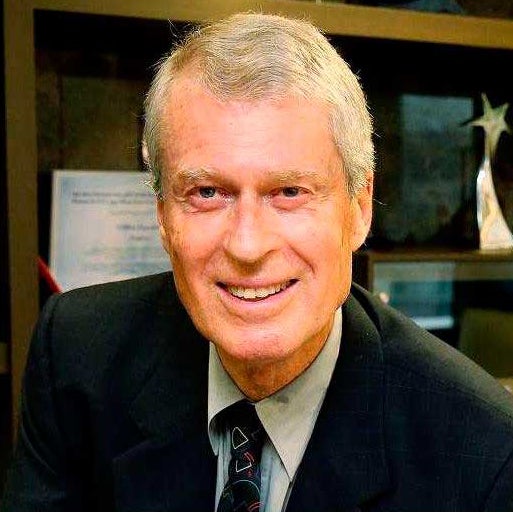
He will present “Groundwater is the Key to a Sustainable Earth” on January 18th in person at the University of Waterloo Theatre of the Arts in the Modern Languages Building with a reception to follow.
The concurrent deterioration of freshwater, soil, forests and oceans, compounded by climate effects, has put Earth on a perilous trajectory. Anthropogenic greenhouse gas emissions are perceived as the overarching threat, but this distracts us from what is more essential to survival in the shorter term. Our focus should be freshwater, groundwater in particular, because 99% of freshwater is groundwater. Freshwater is diminishing. One third of the planet’s largest aquifers are already depleted beyond recovery within centuries. Because 70% of global irrigation relies on groundwater, the depletion of aquifers puts global food security in jeopardy, at the same time as soil productivity is shrinking partly due to irrigation-induced salinization. Technological solutions available to the most affluent nations may overcome these issues and ensure clean water and food for a small, privileged segment of the global community.
The most urgent water crisis affects the more than 2 billion people who live in water poverty. This number is growing as global population is forecast to rise from 8 to 10 billion in the next 50 years. Most water poverty is rural and the only hope for eradicating water poverty is the drilling of tens of millions of properly constructed wells, mostly small household wells, along with household rain harvesting and point-of-use treatment. Attempts are being made to reduce water poverty but the rate of drilling in rural areas is too slow to reverse the trend. To solve rural water poverty, the wells only need to be small and drilled with lowest cost methods; these wells will not be capable of depleting aquifers. Each well need only pump a few thousand liters per day for drinking and sanitation for each family or family cluster.
Of course, many factors are behind today’s environmental crisis, including rising greenhouse gas emissions, but freshwater—and therefore groundwater—is most fundamental and urgent because it is the most basic requirement for humans, along with food. Unfortunately, there is little public or political awareness of groundwater and the capacity of the expert groundwater community in most countries to solve groundwater problems is limited. The Groundwater Project (gw-project.org) is an innovation aimed at increasing awareness and providing a framework for capacity building and problem solving, but many other innovations are urgently needed to reverse the trajectory.
The Groundwater Project (GW-Project), established in 2017, is a Canadian non-profit charitable organization that aims to raise groundwater consciousness and strengthen groundwater expertise worldwide. Since 2017, we’ve published 27 original books with 11 more books near completion; Over 1000 well-recognized scientists and practitioners(including retirees) have volunteered as authors, translators and reviewers. These contributors are associated with over 220 organizations throughout the world. Key to the mission of the GW-Project is fostering rapid dissemination of knowledge and learning tools to universities everywhere including those in developing countries so that those with inadequate teaching resources for comprehensive groundwater education can direct students to synthesized knowledge at a high global standard. Currently, the GW-Project is working with 114 translators (volunteers), translating 18 books, into 41 languages including French, Spanish, Italian, Portuguese, Arabic, Farsi, Greek, Hungarian, Vietnamese, and several local African languages. Emphasis is on overcoming inadequacy in knowledge and technical resources for improved access to safe drinking water globally in both remote rural areas and large urban centers, as well as on understanding and avoidance of contamination of Earth’s groundwater resources.
Speaker Bio
Dr. John Cherry’s research pioneered the field of “contaminant hydrogeology”. He holds geological engineering degrees from the University of Saskatchewan, University of California Berkeley, and a PhD in hydrogeology from the University of Illinois. He joined the faculty at the University of Waterloo in 1971 and retired in 2006 as a Distinguished Professor Emeritus. He co-authored the textbook “Groundwater” with R.A. Freeze (1979) and co-holds several patents, is a Fellow of the Royal Society of Canada, a Foreign Member of the U.S. Academy of Engineering. He was the Chair of the Canadian Expert Panel on the environmental impacts of shale gas development. He has received awards from the USA, UK, Switzerland, Canada, Singapore (Lee Kuan Yew Water Prize, 2016), IAH President’s Award (2019) and the 2020 Stockholm Water Prize. He is currently a Principal Investigator at the G360 Institute and Project Leader for the Groundwater Project (gw-project.org) a project aimed at democratizing groundwater education globally. He is the Director of the University Consortium for Field-Focused Groundwater Contamination Research.
Presented by
